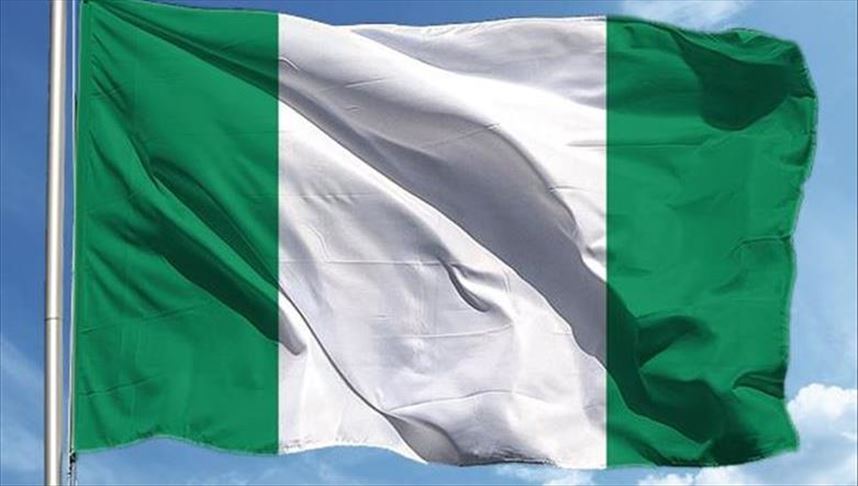Good day readers!
I wish to inform you that ‘A Physician’s Diary’ previously published on Saturdays, will now grace the back pages of our Thursday paper, every week. I look forward to continuing enlightening our readers on current trends and medical issues as they affect our society.
Thank you for your patronage.
Muslims don’t get depression. True Christians don’t get depression. Nigerians do not have depression. If I had a Naira for every time I have heard this misconception, maybe I would have retired by now. Alas! I am but an average middle-class Nigerian civil servant still clamouring for my share of the National cake.
These are common yet dangerous notions that majority of Nigerians still believe to be true.
The idea that a person is suffering from a physical illness perceived to be due to extreme sadness seems perplexing even to the enlightened ones among us.
‘Pray harder’ is the usual response. ‘Count your blessings’ is another retort. ‘Be grateful you are not in so -and-so shoes. ‘Create your own happiness’ and so on and so forth.
But how does one create his own happiness when he wakes up with an overwhelming sense of guilt and helplessness? When the sadness weighs him down so much so that he or she is unable to get up from bed?
How does he cope with the demons that prevent him from sleeping at night and run with his imaginations until he is convinced of his worthlessness? How do you tell such a person to ‘Pray harder’?
The architect sitting before me had all the tell-tale signs of depression. His body language was that of despair; down cast eyes, morose expression, fidgety hands.
He complained of poor sleep, specifically early morning awakening. He usually slept at 11pm and would wake up at 5:00am for prayer.
However, in the past three months, he would wake up at around 2am and be unable to return to sleep. The lack of sleep was giving him headaches and affecting his work.
He was becoming increasingly worried about his job at an architectural firm. When I asked what he was worried about, Abubakar* was unable to give a straight forward answer.
The cardinal symptoms when I enquired were there- overwhelming sadness with occasional crying spells in his room, extreme weakness and being unable to get up in the mornings and a general loss of interest.
He was a 38-year-old man who was previously interested in football and politics, but in the past month, despite the premier league, had not watched a single football match.
He had stopped going to hang out with his friends at their ‘majlis’ to discuss politics and current affairs. Abubakar was withdrawn, preferring to stay in his room alone, not wanting the company of his friends or family.
When I mentioned the possibility of a depressive illness, he seemed confused. ‘Depression kuma?’ But Muslims don’t get depression. Is that not a white people illness?’.
I tried to explain, as best as I could, the pathophysiology of depression and why Muslims, could in fact get depression, but he would have none of it.
His argument was that as true believers, Islam commanded us to accept adversities as trials of faith and to use specific prayers, taught by the prophet (PBUH) to overcome emotions like sadness and anxiety.
When he insisted that he did not have depression, I politely asked him to seek a second opinion.
A study on the prevalence of depression among elderly people attending Quran memorisation classes in Saudi Arabia, showed the numbers to be quite high*.
Similarly, several studies in Nigeria and around the globe show the incidence of depressive illness to be on the rise; and while people are slowly coming to terms and understanding this clinical entity, a vast majority, especially in Nigeria, still prefer to bury their heads in the sand. And it is not limited to Muslims alone.
My Christian colleagues have lamented how depressive symptoms are usually waived off as ‘spiritual’ thereby needing ‘cleansing’ by a pastor.
The aftermath of this line of thinking is that 1) the patients do not get better; in fact, they actually deteriorate and 2) they begin to have a crisis of faith.
Religion, which should erstwhile be used as a tool in the healing process, has instead become a source torture. The individual begins to doubt himself- ‘Why am I not getting better despite these prayer sessions?’
‘Why has all my fasting been in vain?’ ‘Is God punishing me?’
‘Why am I being tested in this manner?’ Some patients then go on to leave religion altogether and are denounced by the society as being ‘unbelievers’, while others, failing to come to harmonise their faith with what they are experiencing, succumb and sink deeper into depression, leading ultimately to suicide.
I remember one morning, some years back, a woman was rushed into the emergency ward by some boys, after attempting to drown herself in a nearby lake.
It was just after Subh prayer, and some Almajiri boys had spotted her when she walked past them crying softly.
They observed her standing by the water, muttering under her breath, as if in prayer or meditation, before jumping into it.
The older boys had immediately lunged in after her, saved her and brought her to the hospital. After she was resuscitated, a psychiatrist was called to review her. A diagnosis of severe depression was made.
She had been battling with the demons in her mind telling her that she was worthless for close to three years. That God was punishing her because she was full of sin.
I remember that patient clearly because of the way she described her pain: ‘Like a big rock has been placed on my chest, suffocating me’.
She used to be a primary school teacher but gradually stopped going to work as she was overcome by feelings of sadness and lack of interest.
In the usual African fashion, ‘Djinn’ had been implicated and different methods had been used to cast them out, all without success.
Her husband had married again and family members were becoming weary of her. Her children were being neglected and she could not do anything to help them.
She was beginning to miss her daily prayers as she had lost interest. She reasoned that it was better to end it all as life was not worth living anymore.
An illness that could be easily diagnosed and managed with drugs, had resulted in a woman nearly killing herself in a gruesome manner.
Which is better- to accept you have depression or to be tortured by symptoms and die by suicide, leaving behind a stain by which your children will be never be cleansed from?
Depression is a diagnosis that we have to come to terms with in Nigeria. It is a clinical disease characterised by a decrease in neurotransmitters in the brain and therefore can be treated successfully.
It is not something white people made up or something that can be prayed away.
One does simply ‘get over’ a depressive illness. It is time both religions recognise this disease and help their members to cope with it.
In fact, religious attendance has been demonstrated in several scientific studies to be linked to better health outcomes. We just have to accept that it exists.
Muslims get it. Christians get it. And yes, Nigerians can have depression.
*Names and situations changed to protect identity.
** Al-Qahtani A, Khamis A, Sebiany A, Awadalla A. Severity of depression among elderly women attending Holy Quran memorization centers in Saudi Arabia. Journal of Gerontology & Geriatric Research. 2014;3(4).

 Join Daily Trust WhatsApp Community For Quick Access To News and Happenings Around You.
Join Daily Trust WhatsApp Community For Quick Access To News and Happenings Around You.


